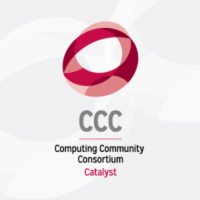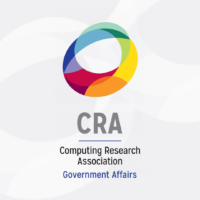CRA Update: Big (and Exciting!) Changes Coming to the DREU Program
By Matt Hazenbush, Director of Communications
Over its nearly 30 years of existence, the Distributed Research Experiences for Undergraduates (DREU) program has helped introduce more than a thousand undergraduates from groups minoritized in tech to computing research by matching them with a faculty mentor for a paid summer research experience. DREU, which is a project of the Computing Research Association Widening Participation Committee (CRA-WP) and supported by the National Science Foundation (NSF), gives students a firsthand look at what graduate school is like and helps its alumni stand out for graduate admissions and fellowships. Faculty mentors get the opportunity to further their research projects with new students and make a positive impact on diversifying the pipeline of computing talent.
And now, for 2024, the DREU program is excited to announce some big changes designed to widen the scope of eligibility for both students and mentors and make the benefits of participating more accessible.
Mentoring Is Open to Faculty at More Institutions of Higher Education in the United States
Are you a faculty member interested in being a research mentor to undergraduates in tech? If so, you may be a great fit to be a DREU mentor. Faculty in computer science, computer engineering, or other closely related areas are eligible to apply.
In the past, mentoring was limited to faculty at PhD granting institutions. The widening of eligibility to other institutions of higher education–including liberal arts colleges–is intended to broaden the pool of potential mentors to faculty at a more diverse mix of schools, including many minority serving institutions.
“This is a meaningful shift that will make DREU mentoring available to a wider pool of faculty, including a lot of faculty that are experienced in supporting students minoritized in computing,” said Curtis Cain, Director of Broadening Participation in Computing Initiatives at CRA. “I’m excited to get these faculty off the sidelines and welcome them into the program.”
No Prior Research Experience Required
Are you an undergraduate interested in exploring computing research? DREU is the perfect opportunity to gain research experience early in your academic career, which can help you decide if you want to pursue a graduate degree and make you an attractive applicant. Participants receive $7,000 for 10 weeks of full-time work, as well as relocation and additional funds to travel to a conference.
And now, students without prior research experience are encouraged to apply.
“The goal of the program is to expose more students to computing research as a path available to them,” explained Cain. “Removing the prior research requirement supports this goal while also allowing us to draw applications from a much wider swath of talented young students.”
While research experience will be considered in evaluating student applicants, the admissions committee will focus its selection of students on their potential for success in graduate school, as indicated by their record and recommendations; the extent of their skills; the applicant’s potential gain from the experience (e.g., students at institutions unable to offer research opportunities with faculty); and the potential that the applicant’s participation will advance the goals of the program.
A benefit of discontinuing the prior research experience requirement is that younger students–specifically rising sophomores–will be more competitive applicants, and a stronger recruitment focus for the program in 2024.
“Attracting more rising sophomores to the program is a major focus for us in 2024,” said Cain. “We believe giving students research experience early in their time as undergraduates will enrich the remainder of their studies, as well as show them that computing research is a viable path for them to consider after they graduate.”
Students Can Stay at Their Home Institution
Another change to the program is that students can now stay at their home institution for their DREU experience if that’s their preference.
“We want to make DREU as accessible as possible, and that’s why we want to give our students the option to stay at their home institution if that’s their preference,” said Cain. “Whether a student can’t be away from their home institution for personal reasons, or if they have a faculty member they especially want to work with there, we want those students in our program, and I’m glad we can support them with this policy change.”
Early Action Application Deadline
Applications for DREU 2024 are now open!
And new for this year is the option to apply by December 15, 2023 as an early action applicant. Students and mentors who complete their applications by this date will be matched earlier than those who complete their applications by the February 15 general deadline, providing them with the peace of mind of knowing their application decision and allowing them to plan for their summer earlier in the calendar.
For more information on the DREU program, eligibility and admissions requirements, and more, check out the DREU page on cra.org. Questions not answered on the FAQ page may be submitted to dreu@cra.org.









